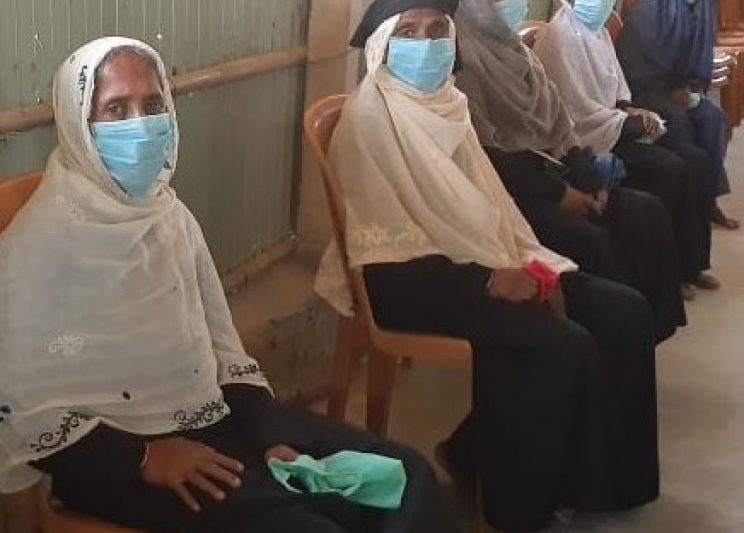As COVID-19 cases rise in camps for refugees and displaced people, UN OCHA has released an update to the Global Humanitarian Response Plan which includes new data on the impact on older people.
According to WHO data published in the latest update, adults aged 60 years account for 15.4 per cent of cases in the countries included in the humanitarian response plan and fatalities rise steadily with age.

“This update further highlights the high risk caused by COVID-19 to older people in camps for refugees and displaced people. The threat to older people cannot be under-estimated if the virus starts to spread across the camps. This comes on top of the impact the crisis is already having on income, food security and levels of violence and abuse,” said Justin Derbyshire, Chief Executive of HelpAge International.
The latest version of the plan acknowledges that the extremely austere situations found in most humanitarian settings managing COVID-19 will be a major challenge and that the risk to older people and those with underlying conditions is high.
It also acknowledges the threats to and abuses of older people’s rights are occurring in both the public health emergency response and in the wider impact of the pandemic. Public discourse around COVID-19 that portrays it as a disease of older people can also lead to social stigma and exacerbate negative stereotypes about older persons.
Confirmed cases have now been reported in Cox’s Bazar, Bangladesh and in Dadaab camp in Kenya, the world’s largest refugee camp, as well as in Syria and Yemen and amongst Palestinian refugees in several countries in the Middle East.
“The picture could not be clearer. Despite widespread recognition of the risks faced by older people, most donors have yet to step up and prioritise protecting and upholding their rights in the support they provide to address this pandemic.
“Humanitarian agencies and donors must now implement the plan developed by UN OCHA and strengthen the focus on older people in the response.”
Read the updated Global Humanitarian Response Plan here.
